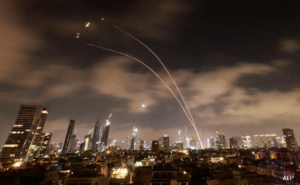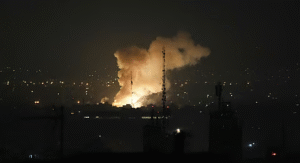Operation Sindoor and Escalating India-Pakistan Tensions
Operation Sindoor, India’s retaliatory strikes following the Pahalgam attack, has significantly escalated tensions between India and Pakistan, two nuclear-armed neighbors with a long history of conflict. We will analyze the events, their immediate consequences, and the broader implications for regional stability and international relations.

The Catalyst: The Pahalgam Attack
The catalyst for Operation Sindoor was the Pahalgam attack, which resulted in the deaths of numerous civilians. India attributed this attack to terrorist groups operating from Pakistani soil, a claim Pakistan denies. In response, India launched precision missile strikes, targeting what it identified as terrorist camps and infrastructure within Pakistan and Pakistan-occupied Kashmir. India’s use of advanced weaponry, such as Scalp cruise missiles and Hammer smart weapons, underscores the operation’s strategic nature and intent to inflict significant damage.
Pakistan’s Response: Condemnation and Alert
Pakistan’s reaction was swift and strong. Islamabad condemned the strikes as a “blatant act of war,” a phrase that carries significant weight in international diplomacy. The immediate closure of Pakistani airspace reflects the severity with which Pakistan views the situation, indicating a state of heightened alert and potential for further military action. Pakistan’s vow to respond “appropriately” leaves room for speculation about the nature and scale of its response, raising concerns about a potential escalation.
International Reaction: Calls for Restraint
The international community’s response has been one of deep concern and a call for restraint. Major powers, including the United States and China, have urged both India and Pakistan to de-escalate tensions. These calls reflect a recognition of the potentially catastrophic consequences of a full-scale conflict between two nuclear-armed states. Russia’s expression of “deep concern” further highlights the gravity of the situation, given its historical ties with India and its role as a major player in international affairs.
Domestic Impact: Heightened Alert in India
The domestic impact of Operation Sindoor has also been significant. The temporary closure of airports in northern India, including Srinagar, Jammu, and Chandigarh, disrupted air travel and caused inconvenience to civilians. The implementation of nationwide civil defense mock drills indicates a state of heightened alert within India, with authorities preparing for potential contingencies. These measures, while aimed at ensuring public safety, also contribute to a sense of unease and uncertainty among the population.
Operation Sindoor: A Shift in Strategic Posture
Operation Sindoor represents a significant departure from previous patterns of engagement between India and Pakistan. While cross-border skirmishes and localized conflicts have been relatively common, the scale and nature of these missile strikes are unprecedented. The use of precision-guided munitions to target locations deep within Pakistani territory signals a shift in India’s strategic posture, emphasizing a more proactive and assertive approach to counter-terrorism.
Long-Term Implications: Uncertainty and Risk
The long-term implications of Operation Sindoor are complex and uncertain. The operation could lead to a period of heightened tensions, with increased military activity along the Line of Control (LoC) and potentially beyond. There is a risk of a tit-for-tat escalation, with each side taking retaliatory measures, leading to a dangerous cycle of conflict. The potential for miscalculation or unintended escalation is a serious concern, given the short reaction times and the destructive power of modern weaponry.
The Potential for Deterrence
Alternatively, Operation Sindoor could serve as a deterrent, sending a strong message to Pakistan about the consequences of supporting or harboring terrorist groups. If Pakistan takes concrete steps to address India’s concerns and curb cross-border terrorism, the situation could de-escalate. However, this outcome depends on a complex interplay of political will, diplomatic efforts, and strategic calculations on both sides.
The Crucial Role of the International Community
The role of the international community will be crucial in managing the crisis. Diplomatic efforts to facilitate dialogue and mediation between India and Pakistan are essential. The United Nations, along with major powers, can play a role in promoting de-escalation and preventing further conflict. However, the effectiveness of these efforts will depend on the willingness of both India and Pakistan to engage in constructive dialogue and compromise.
A Dangerous and Uncertain Phase
In conclusion, Operation Sindoor has plunged India and Pakistan into a dangerous and uncertain phase. The operation’s immediate consequences include heightened tensions, military posturing, and international concern. The long-term implications for regional stability and international relations are significant, with the potential for both escalation and de-escalation. The path forward will require careful diplomacy, strategic restraint, and a commitment to peaceful resolution from both sides, as well as a proactive and engaged international community.




















